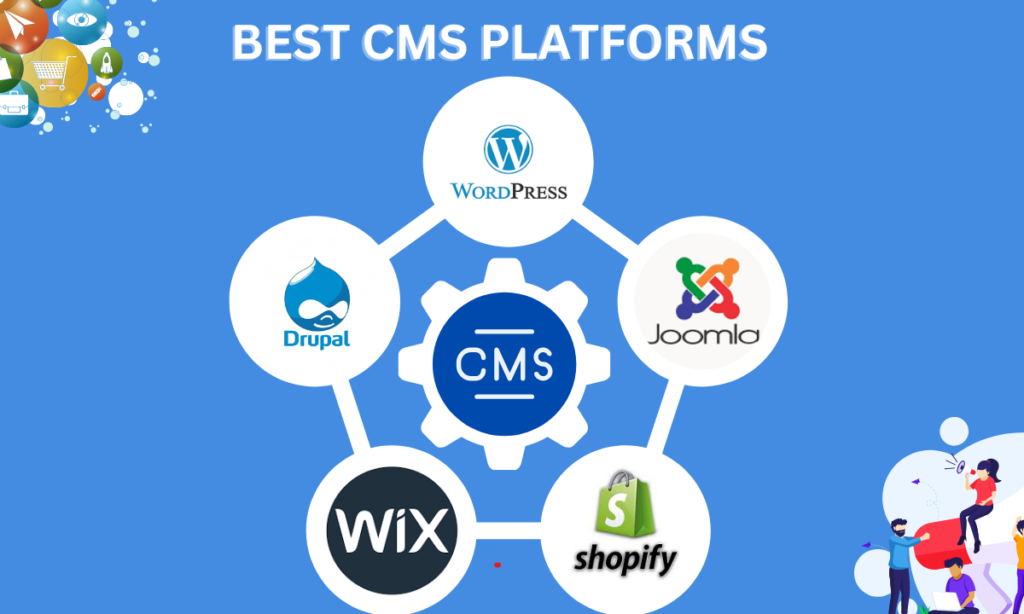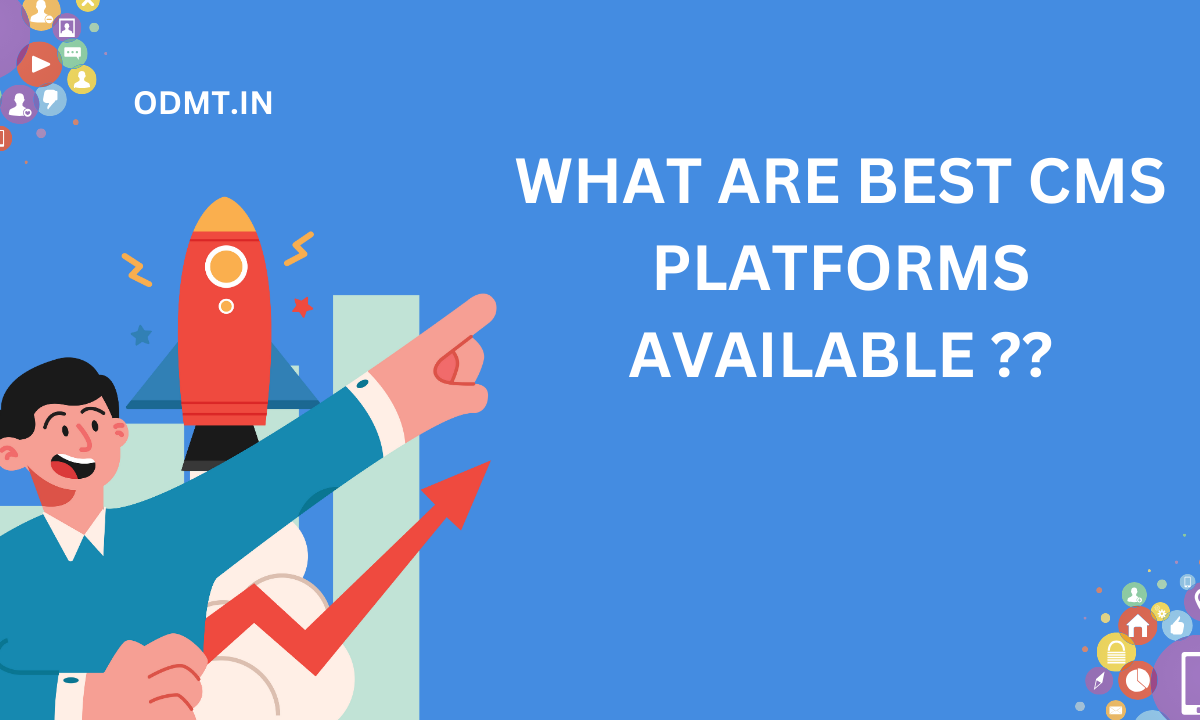CMS(Content Management System) :
A Content Management System (CMS) platform is a software application or system that enables users to create, manage, and publish digital content on the web without requiring advanced technical skills. CMS platforms typically provide a user-friendly interface for content creation and editing, as well as tools for organizing and structuring content.
CMSs are commonly used for websites, blogs, and other online platforms. They provide an interface for users to add, edit, and organize content without requiring technical expertise in web development. Some popular CMSs include WordPress, Joomla, and Drupal.
Here are numerous Content Management System (CMS) platforms available, each with its own features, strengths, and weaknesses.
Also Read : What is WordPress ?
Here are some popular CMS :
- WordPress: One of the most popular CMS platforms globally, known for its flexibility, ease of use, and extensive plugin ecosystem.
- Joomla: Another widely used CMS, offering a balance between flexibility and ease of use, suitable for building various types of websites.
- Drupal: Known for its robustness and scalability, Drupal is often chosen for large, complex websites and applications.
- Magento: Specifically designed for e-commerce websites, Magento offers powerful features for online stores.
- Shopify: A hosted e-commerce platform that provides everything needed to start, manage, and grow an online store without requiring advanced technical skills.
- Wix: A user-friendly platform that allows users to create websites using drag-and-drop tools and offers a range of templates and features.
- Squarespace: Similar to Wix, Squarespace offers an intuitive website-building experience with visually appealing templates and built-in features.

Key features of CMS platforms include:
- Content Creation: Users can easily create and edit digital content such as text, images, videos, and documents using a WYSIWYG (What You See Is What You Get) editor.
- Content Management: CMS platforms allow users to organize and categorize content, as well as manage user permissions and workflows for content approval and publishing.
- Publishing: Users can publish content to their website or digital platform with just a few clicks, often with scheduling options to automate publishing at specific times.
- Customization: Many CMS platforms offer themes, templates, and plugins/extensions to customize the design and functionality of websites and digital applications.
- SEO (Search Engine Optimization): CMS platforms often include features to optimize content for search engines, such as customizable URLs, meta tags, and sitemaps.
- User Management: Administrators can manage user accounts, roles, and permissions to control access to content creation and editing features.
- Security: CMS platforms include security features to protect against vulnerabilities and unauthorized access, such as user authentication, SSL encryption, and regular software updates.
- Integration: Many CMS platforms offer integration with third-party services and tools, such as e-commerce platforms, marketing automation software, and analytics tools.
